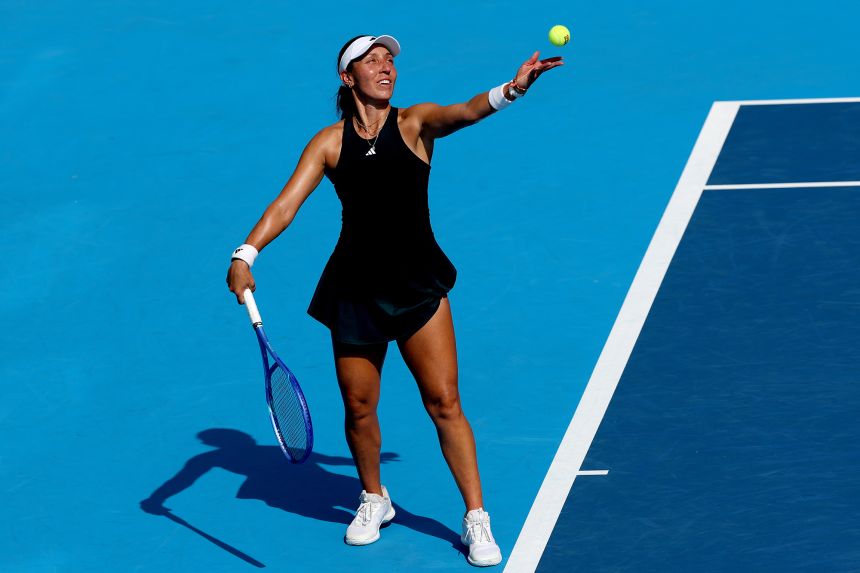As she approached 30, American tennis player Sloane Stephens was faced with a dilemma. She wanted to continue with her career – to win titles and climb up the rankings – but also hoped to start a family at some point in the future.
Rather than retire early or take an extended break from the sport, Stephens decided to freeze her eggs on two occasions. For her peers, that made her something of a trailblazer.
“I’m always the one that they come to to be like, ‘What happened? What did you do? Who did you use?’” Stephens told CNN Sports’ Amanda Davies. “I think the conversations have now become even more open, which is amazing.
“Everyone’s speaking about it, everyone’s sharing their journeys because it’s helping all of us understand what everyone’s gone through so we can make the best-informed decisions.”
A landmark initiative introduced by the WTA Tour and fully funded by Saudi Arabia’s Public Investment Fund (PIF) has made the topic of fertility more relevant in women’s tennis than ever before.
As part of the initiative, players can receive grants for egg and embryo freezing and IVF treatment, as well as paid maternity and parental support.
The Tour has also introduced ranking protection for those undergoing egg or embryo freezing, another layer of support for players returning to competitions after such procedures.
Stephens, the 2017 US Open champion, believes that widening the conversations around fertility treatment will enable players to start thinking about family planning much earlier in their careers.
“If I’d known, I probably would have done it when I was 22 and my eggs were all good and fluffy and ready and all of that,” she said.

“It definitely makes a difference for the younger players now who can start thinking about it at 25 instead of 32 or 30, or even thinking about it at 20 and can make the decision by 28,” she added.
“Those years all matter. … That younger generation of girls now will feel more comfortable talking about it, doing it; they feel supported with the ranking. It really does change the trajectory of how women in sports are making decisions for their futures.”
Stephens wasn’t aware of any other tennis players before her who had frozen their eggs, but thought it was “the most proactive” she could be about starting a family while continuing to pursue her career.
The process wasn’t straightforward. On the first occasion, she said that she “gained 15 pounds – not a great experience – and came back to competition way too early and was just not very happy.”
That prompted her to try it a second time, which she described as a “complete different experience – both times I got what I wanted out of it, but first time was very stressful, the second time, totally fine.”
The 32-year-old has since become a sounding board for other players and advocated for greater support around family planning during her time on the WTA Players’ Council.
“Everyone’s bodies take differently to different medications, different drugs, different procedures, all of the above,” she said.
“I really wanted to make sure that the players had the opportunity to go at their own speed, their own pace, and have their own opportunity to decide when they wanted to return to play and how much they wanted to take off – not to have to rush back and get another injury because they weren’t ready to play.”
Stephens’ compatriot, world No. 4 Jessica Pegula, told CNN en Español earlier this year that she has explored the possibility of freezing her eggs with women’s health specialists on the WTA Tour.
“Not a lot of people know how that process works and a lot of us play into our 30s and maybe there’s not a time to have kids,” said Pegula. “You don’t really know how it works and you’re looking into it.

“Myself, I’m 31 so that’s something that interested me. I don’t know what I’m going to do, but the window of having a kid kind of gets smaller and smaller as you get older. Being an athlete, it can be really, really stressful wanting to pick when or if you want that to happen.”
Tennis, the first sport to facilitate fertility treatment for athletes in this way, is no stranger to having mothers on tour, including four-time grand slam winner Naomi Osaka, world No. 13 Elina Svitolina and No. 19 Belinda Bencic.
For eight-time WTA Tour winner Stephens, supporting mothers and mothers-to-be is “very much long overdue” in women’s sports. Now, she wants to see this area better resourced – both in tennis and also across the board.
“Every female sport should be following the same narrative of advancing players, advancing players’ futures, advancing their rights to have families and their decisions, all of that,” said Stephens.
“It’s cool that tennis is one of the sports to do it and in this type of way, but there’s so much more to be done. … It could eventually change our whole tour in 20 years.”

